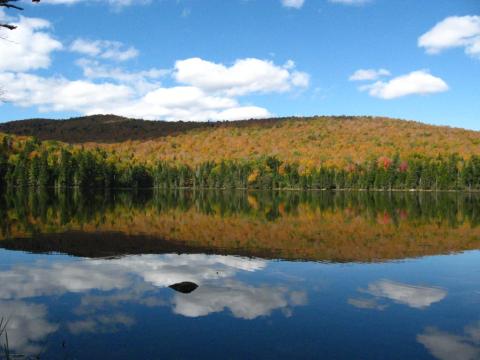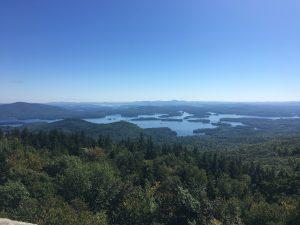
Squam Lake, Photo by Jessica Casterline
Starting in 2007, the New Hampshire Water and Watershed Conference (NHWWC) has been an annual forum for sharing water resource information. Each year, over 175 academics, regulators, non-profit organizations, water resource professionals, land use planners, elected officials, and others have gathered to share information on regional water resource issues including water quality and supply.
"...a great conference that brings together an awesome group of stakeholders that have no other equivalent event."
We held the last conference at Plymouth State University on March 13, 2020, just as the coronavirus was rapidly changing things in New Hampshire and across our country. We hope to continue the event in the future in a format that allows for everyone to enjoy in learning about our water resources.
Previous NH Water & Watershed Conferences
NH Water and Watershed Conference at Merrill Place, Plymouth State University, Plymouth, NH
March 13, 2020
8:00 am – 8:45 am: Registration and networking – Merrill Place Lobby
8:45 am – 9:45 am: Plenary Talk | What’s in Your Water? Legal Approaches to Addressing Persistent Threats – Patrick A. Parenteau, J.D., Professor of Law and Senior Counsel in the Environmental and Natural Resources Law Clinic, Vermont Law School
9:45 am – 10:30 am: Poster Session
10:30 am – 12:30 pm: Morning Talks (3 breakout sessions, 4 talks per session)
Watershed Trends and Tools | Chair: Amy Villamagna
- Trends in New Hampshire’s Water Quality – Kirsten Nelson
- High elevation waters: Declines in air pollution inputs & surface water response – Georgia Murray, Ralph Perron and Sarah Nelson
- Diatom Indicators of Environmental Changes in Sediments of Northern New England Lakes – Sydney Welch & Lisa Doner
- New Web Apps by NHGS: Stream Temperature and Groundwater Data Discovery – Gregory Barker & Joshua Keeley
Watershed and Lakes Protection Chair: Shane Csiki
- DDT Contamination in Squam Lake, NH: A Watershed Approach – Amanda May
- Contaminants in Loon eggs in New Hampshire – Tiffany Grade
- The Elephant in the Outhouse – Jon Balanoff & Sally Soule
- LakeSmart – a Lake-Friendly Living Program Inspiring a New Conservation Ethic –Krystal Costa Balanoff
PFAS Chemicals in the Water Cycle: A Municipal Perspective | Chairs: Lisa Coté & Brian Goetz
- PFAS Primer – What You Should Know About This Emerging Contaminant – Andrea Tokranov
- PFAS in the New Hampshire Fire Service – Michael Foss
- New England PFAS Timeline and Current Status of PFAS Management in Drinking Water – Brian Goetz
- PFAS levels in NH Waters and Implications for Schools on Septic Systems – Brandon Kernen
12:30 pm – 1:30 pm: Lunch
1:30 pm – 3:00 pm: Afternoon Talks (3 breakout sessions, 3 talks per session)
Public/Private Partnerships: Water-based entrepreneurship | Chair: Katie Zink
- Source Water Protection in Francestown, NH – Justin Shaw
- Wood in Streams Benefits Trout and Watershed – Donna Hepp and Colin Lawson
- A Seat at the Table for Science: Lessons for water quality management from negotiation – Lindsey Williams
Climate Change Impacts | Chairs: Michelle Shattuck & Joe Boyer
- Taking Nitrogen by storm: Environmental controls on Nitrogen removal in reservoirs and implications for management – Eliza Balch
- The Vulnerability and Resilience of High-elevation Watershed Waters to a Changing Climate – Michael Simpson
- Confronting changing winters: documenting loss of cold and snow across the Northeast – Sarah Nelson, Alix Contosta, Nora Casson, Sarah Garlick, Liz Burakowski and Georgia Murray
PFAS Chemicals in the Water Cycle: A Municipal Perspective | Chairs: Lisa Coté & Brian Goetz
- PFAS in Municipal Wastewater and Residuals (Biosolids) – Chip Chesley
- Management of PFAS in Municipal Solid Waste and Leachate – Marc Morgan
- PFAS Q&A Panel – Integrated PFAS Management at the Municipal Level – How to Break the Cycle? – All track Speakers
3:00 pm – 3:15 pm: Break
3:15 pm – 4:15 pm: Panel discussion | Q & A with Persistent and Evolving Water Resource Leaders
Panelists:
- Johnathan Bumgarner, Director, New England Water Science Center, US Geological Survey
- Lisa Coté , M.A., Senior Hydrogeologist, GEOSPHERE Environmental Management, Inc.
- Brian Goetz, Deputy Director of Public Works, City of Portsmouth, NH
- Tom O’Brien, President, NH LAKES
- Tom O’Donovan, P.E., Director, Water Division, NH Department of Environmental Services
Throughout the Day: Posters on New Hampshire Water Topics
The NH Water & Watersheds Conference has been organized by a dedicated group of people from a variety of organizations. Many thanks to the following 2020 committee members and their organizations:
- June Hammond Rowan, Jessica Casterline, & Amy Villamagna – Center for the Environment, Plymouth State University
- Melanie Cofrin, Tracie Sales, Tom Swenson, & Katherine Zink – NH Department of Environmental Services
- Shane Csiki – NH Geological Survey, NH Department of Environmental Services
- Joe Ayotte, US Geological Survey – NH/VT Office
- Lisa Coté – GeoSphere Environmental Management, Inc.
- Brian Goetz – City of Portsmouth, NH
- Tom O’Brien – NH LAKES
- Michelle Shattuck – NH Water Resources Research Center, University of New Hampshire
- Justin Shaw – Granite State Rural Water Association
Thank you to our 2020 NH Water & Watershed Conference Sponsors! They provide valuable support for the event.
- Eastern Analytical, Inc.
- GEOSPHERE Environmental Management, Inc.
- Nobis Group
- New England Water Science Center, US Geological Survey
- NH LAKES
- NH Department of Environmental Services
- NH Water Resources Research Center, University of New Hampshire
- NH Water Works Association
- Plymouth State University’s Center for the Environment
NH Water and Watershed Conference at Merrill Place, Plymouth State University, Plymouth, NH
March 15, 2019
8:00 am – 8:45 am: Registration and Networking – Merrill Place Lobby
8:45 am – 9:45 am: Plenary Session
The Million-Dollar Question: How are New Hampshire’s lakes and rivers doing? – David Neils, Chief Aquatic Biologist for NHDES
For years, the New Hampshire Department of Environmental Services (NHDES) has collected data from our surface waters. Various reports summarize these data for individual waterbodies and the biennial water quality assessment serves as the primary process for determining impairment. However, until recently, a statewide approach to monitoring and reporting was lacking. Come learn about the state’s new strategy for a coordinated approach to surface water monitoring and an updated assessment of the condition of our waterbodies.
9:45 am – 10:30 am: Poster Session
10:30 am – 12:00 pm: Morning Talks (4 breakout sessions, 3 talks per session)
Economy of Water | Chair: Amy Villamagna
- Historical climate warming in the White Mountains of New Hampshire: implications for snowmaking water needs at ski areas – Geoff Wilson and Mark Green
- What Is Our Water Worth and What Does Our Water Cost? A Review of economic data on water in New Hampshire – Thomas O’Brien and Alison Watts
- Deliberative Multicriteria Analysis: An Application in the Great Bay Watershed – Rich Howarth
GIS and Remote Sensing for Environmental Science and Management | Chair: Shane Csiki
- Unmanned Aerial Systems (UAS) for Snow Science: Shared Lessons for Pushing the Envelope – Jennifer Jacobs
- Using GIS technology to improve watershed management planning and implementation tracking of surface waters – Margaret Burns & Laura Diemer
- Beyond the Blue Lines—Researching NH’s Hydrography – Joshua Keeley and Frederick Chormann
Community Conservation Partnerships | Chair: Judy Tumosa
- Water Quality and the Work of Your Local Conservation District – Stacy Luke, Donna Hepp and Pamela Gilbert The Million Dollar Question
- Sustaining the Saco River – Emily Greene
- Stony Brook Streamflow Restoration Project – A Case Study of Coordinated Management of Shared Water Resources – Hayley O’Grady
Water Quality and Quantity Regulations | Chair: Vivien Taylor
- Review of the Drinking Water and Groundwater Standards for Arsenic – Paul Susca and Cynthia Klevens
- Understanding Wetland Priority Resource Areas – Rick Van De Poll and Mary Ann Tilton
- Newmarket’s Battle Between Capital and Compliance – Renee Bourdeau and Sean Grieg
12:00 pm – 1:00 pm: Lunch
1:00 pm – 2:30 pm: Afternoon Talks (3 breakout sessions, 3 talks per session)
Fish and Freshwater Fragmentation | Chair: Amy Villamagna
- Management Implications for Brook Trout in a Fragmented Landscape – Dianne Timmins
- Movement and Genetics of Eastern Brook Trout Post Restoration in the Beebe River Watershed – Jared Lamy and Joshua Hoekwater
- Prioritizing Culvert Replacement Projects to Restore Habitat Connectivity in the Warner River Watershed – Katerina Crowley and Ben Nugent
Roles & Concerns of Sediments: From Land to Water | Chair: Carolyn Greenough
- Applying an alternate approach to watershed management for two New Hampshire lakes with unique water quality stressors and responses – Laura Diemer
- Using Reservoir Size, Watershed Characteristics, and Sediment Transport Proxies to Estimate Impounded Sediment Volume and Dominant Grain Size at Dams in New England – Christian Olsen
- Emergency Erosion Control Techniques for Severe Weather Conditions During Active Timber Harvest – Jim Frohn & Karl Honkonen
Use of New Technology in Water Resources | Chair: Michelle Shattuck
- Environmental DNA to detect fish in coastal systems – Devin Thomas
- Spatiotemporal trends in solute export and concentration-discharge relationships determined by a high-frequency in situ optical sensor network – Hannah Fazekas
- The role of ‘unseen’ water in managing NH water resources – Mark Green
2:30 pm – 2:45 pm: Break
2:45 pm – 3:45 pm: Panel Discussion
Positive Outcomes to Address a Changing Water Landscape: One Step at a Time – Moderator Shane Csiki, NH Geological Survey
In recent years, many towns in New Hampshire have commented that the form of our water resources, whether it be increased river dynamics, or watershed processes, is changing. Addressing these issues in its entirety, at once, is daunting, but towns have taken actions to address new and emerging problems. Our panel of representatives from local communities will share their experiences implementing projects that demonstrate positive steps to address our changing watershed processes. You will have the opportunity to engage with our panel and ask questions on how best to execute successful projects (in addition to the challenges!) so that New Hampshire can continue to accumulate positive changes through successful projects, one step at a time.
Throughout the Day: Posters on New Hampshire Water Topics
- Temporal trends of physical and chemical parameters measured in tributaries of the Saco/Ossipee Watershed – Jillian Emerson and Victoria Green
- A Contest-Based Crowdsourcing Scheme to Monitor Household Water Quality – Scott Greenwood
- Every Drop: A clean water movement of enjoyment & protection – Trevor Mattera
- The Androscoggin River Watershed Stream Crossing Assessment Project – Ashley Newell
- WaterViz! A Water Cycle Visualization Tool at the Hubbard Brook Experimental Forest- Sarah Thorne
- Twitter/ Social Media Poster- Tom Swenson
- The Effects of Storm Events on Nitrogen in Small Impoundments- Eliza Balch
- Groundwater-Dependent Spawning by Brook Trout in the Dead Diamond River and Beyond- Keith Fritschie
NH Water and Watershed Conference at Merrill Place, Plymouth State University, Plymouth, NH
March 23, 2018
8:00 am – 8:30 am: Registration and Networking – Merrill Place Lobby
8:30 am – 9:20 am: Plenary Talk
“An Aquatic Symphony: The Ongoing Revolution in in situ Water Quality Sensing and What It Means for Watershed Science and Resource Management" – Wilfred Wollheim, Associate Professor, Department of Natural Resources and co-director of the Water Systems Analysis Group, University of New Hampshire
9:20 am – 9:45 am: Update on The NH Drinking Water and Groundwater Advisory Commission and Trust Fund – Senator Chuck Morse
9:45 am – 10:25 am: Poster Session
10:25 am – 10:30 am: Walk to breakout sessions
10:30 am – 12:30 pm: Morning Talks (4 breakout sessions, 4 talks per session)
Water Quality Monitoring and Modeling | Chair: Joseph Boyer
- Lowell Water’s Clean Stream Initiative on the Merrimack River – Greg Coyle, Steve Chapra, and Tim Devine
- Potential Drivers of a Regional Stream Water Nitrate Pulse – Mark Green
- Quantifying the Impact of Dams on Floods, Droughts, and Nutrient Flux in the Lamprey River Watershed – Dave Simon, Anne Lightbody, and Shan Zuidema
- Assessing Models of Arsenic Occurrence in Drinking Water from Bedrock Aquifers in New Hampshire – Melissa Lombard
Addressing Stormwater | Chair: Carolyn Greenough
- How do New Hampshire Communities Address Stormwater in their Master Plans? – June Hammond Rowan, Jason Spencer, and Carolyn Greenough
- How New England can Benefit from Parking Lot Trees: Municipal Data and Recommendations – Tyler Simonds
- Tree Filter Systems for Stormwater Management – Paul Iorio
- The Stormwater Benefits of High-Performance Urban Trees – Shane Carpani
Public Engagement in Water and Watershed Issues | Chair: Vivien Taylor
- Using a Mental Models Approach to Understand Expert and Community Perceptions of Arsenic in Drinking Water – Kathrin Lawlor, Shannon Rogers, and Mark Borsuk
- Improving Resilience in a Time of Disturbance – Kallie Matso
- The New Hampshire Drinking Water Festival: Celebrating Water and Water Professionals – Andrew Madison and Lara Hooper
- The Twin State Mercury Project: Promoting Mercury Science and Data Literacy Through Participatory Research – Kate Buckman
Data and Information Tools for Water Resources Decision Support | Chair: Shane Csiki
- Buffer Options for the Bay: A New Buffer Resource for Watershed Managers and Practitioners – Steve J Miller
- Leveraging Drones for Data Collection – Andy Street
- Map Services to Support Flood Hazard Mitigation and Stream Restoration Efforts Across the State – Thomas Taggart and Cheryl Bondi
- DAM Dashboard: Dam Assessment and Management Tool Pilot Project – David Roman
12:30 pm – 1:25 pm: Lunch
1:25 pm – 1:30 pm: Walk to breakout sessions
1:30 pm – 3:00 pm: Afternoon Talks (3 breakout sessions, 3 talks per session)
Streams, Habitats, Fish, and How eDNA Can Help Us Find Them | Chair: Allison Watts
- Riparian Influences on Stream Habitat, Nutrients, and Ecology – John Magee
- The Effects of Historic Land Use on Wild Brook Trout (Salvelinus fontinalis) in Headwater Streams – Tyson Morrill
- Environmental DNA: An Emerging Tool in Water Resource Management – Alison Watts
Municipal Infrastructure and Water Supply | Chair: Brian Goetz
- Public Water Systems: Keeping up with Technology, Weather Patterns, Emerging Contaminant and Customer Expectation – Brian Goetz
- Drinking and Ground Water Commission and Trust Fund: Renewed Investment in Infrastructure and Source Protection – Paul Susca
- Perspectives on Municipal Stormwater Infrastructure –Tim Puls and Bill Boulanger
Ecological Health In New Hampshire | Chair: Carolyn Greenough
- Squam Lake Loons and Contaminants in the Squam Watershed – Tiffany Grade
- Successes and Challenges Using Co-Indicators along with Traditional Source Tracking Methods to Better Pinpoint Human Sources of Fecal Contamination: A Case Study in North Hampton, NH – Laura Diemer
- Ecological Models for Improved Management of Vibrio parahaemolyticus Risk in the Great Bay Estuary – Meghan Hartwick
3:00 pm – 3:10 pm: Break & walk to Merrill Place
3:10 pm – 4:15 pm: Panel Discussion on Regional Watershed Management Issues: The good, the bad, and the ugly – Join us for an engaging discussion that explores a variety of issues related to why and how we manage our watersheds. We will explore challenges, goals, scale, capacity, team building, and governance as drivers of success.
Throughout the Day: Posters on New Hampshire Water Topics | Chair: Emma Handy
- Newfound Lake’s clear water system: an ecosystem approach – Robert Pinsonneault
- A Permaculture Perspective on Low Impact Landscape Design – Andrew Veilleux
- Future Risk of Dams in New England Under Land Use & Climate Change – Iman Hosseini-Shakib
- PFAS Sampler Development – Scott Greenwood
- Hot and Salty: Assessing ecological stress in New Hampshire streams at community and population levels – Katerina Crowley
- Quantification of HSP70 in Stonefly Nymphs: A novel approach to biomonitoring – Roy Fruit
- Spatial Model to Map Sandbars in the Connecticut River Water for Floodplain Conservation – Bogumila Backiel
- Potential Impact of Sulfamethoxazole on Microbial Communities Indigenous to the Nashua and Nissitissit Rivers – Susan E. Barbaro
10th Annual NH Water and Watershed Conference at Merrill Place, Plymouth State University, Plymouth, NH
March 24, 2017
Past and Future Challenges of Water Resource Management in NH

10 Years of NHWWC Sessions by Carolyn Greenough
The 2017 conference focused on what has transpired during the past ten years and what we might expect during the next ten and beyond. Over time, the NHWWC has explored a variety of topics and this year the event focused on key issues related to pollutants, rivers and streams, water infrastructure, climate change, mitigation and restoration, technology and tools, and outreach. The 2017 conference featured a plenary speaker, approximately 30 talks, a poster session, and a workshop style session in the afternoon designed to summarize progress over the past 10 years. A summary report of the conference is available.
Agenda
8:00 am – 8:30 am: Registration and networking
8:30 am – 9:30 am: Plenary Talk | “Water Power, Paradoxes, and Rainmakers” – Thomas Burack, Former Commissioner, NH Department of Environmental Services, Attorney at Sheehan Phinney
9:30 am – 10:15 am: Poster Session
10:15 am – 11:45 pm: Morning Talks
Riparian Corridors | Chair: David Patrick
- The Role of Riparian Climate Corridors in Promoting Ecological Resilience – David Patrick
- The Upcoming Challenges for Wetland Restoration Efforts Along Riparian Corridors – Michael Simpson
- Expanding Riparian Forest Buffers in the Merrimack River Watershed – Karl Honkonen

Pollutants | Chairs: Dave Cedarholm
- Ghosts of MtBE Past, Present, and Future – Gary Lynn
- Trends in Methyl Tert-Butyl Ether Concentration in Private Wells in Southeast New Hampshire, from 2005 to 2015 – Sarah Flanagan
- The New Hampshire PFC Investigation – Brandon Kernen
Outreach | Chair: Barbara McMillan
- Outreach, Innovations, and Change Around Municipal Stormwater Management – James Houle
- Soak up the Rain New Hampshire: Successes, lessons learned, and what’s next – Barbara McMillan and Lisa Loosigian
- Arsenic in Private Well Water: Engaging a variety of stakeholders to create lasting change – Kathrin Lawlor

River and Stream Infrastructure for Improvements | Chair: Shane Csiki
- Stream Passage Improvement for Infrastructure, Fish Passage, and Flood Mitigation – Melinda Bubier and Shane Csiki
- Developing a Tidal Stream Crossing Assessment Protocol for NH’s Estuaries – Kevin Lucey and Peter Steckler
- Blending Engineering and Environmental Considerations in the Design of Infrastructure Improvements – Sean Sweeney
Legacy Issues | Chair: Paul Susca
- Twenty Five Years of Instream Flow Policy – Ted Diers
- Acid Rain Trends in New Hampshire Lakes and Ponds: An overview of waterbody response to acid deposition-related parameters in three NHDES monitoring programs – Kirsten Nelson
- Contrasting Chloride and Temperature Threats to Aquatic Ecosystems for Uncertain Histories and More Uncertain Futures – Shan Zuidema
11:45 pm – 1:15 pm: Lunch & Talk by Governor Chris Sununu (invited)
1:15 pm – 2:45 pm: Afternoon Talks
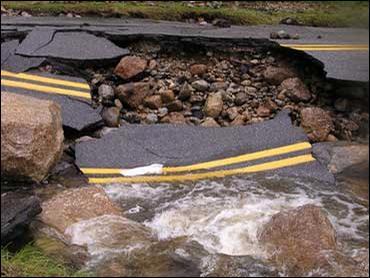
Climate Change | Chair: Michael Simpson
- Simulated Hydrologic Response to Climate Change During the 21st Century in New Hampshire – David Bjerklie
- Projecting Future Changes in Flooding Across New England: More challenging than you might think – Cameron Wake & Danielle Grogan
- Drought Management in New Hampshire – Brandon Kernen
Pollutants | Chair: Joe Boyer
- Controls and Impacts of Mercury in Watersheds in the Northeast – Vivien Taylor
- Phosphorus Transport to Squam Lake During Storm Events – Anju Shrestha
- Long-term Patterns in Cyanobacterial Blooms in Oligotrophic Lake Sunapee – Kathryn Cottingham
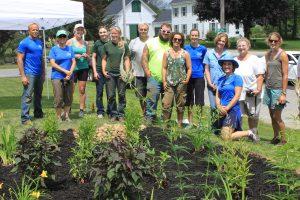
Outreach | Chair: Judy Tumosa
- Watershed Scale BMP Installation: Educating and engaging communities in New England – Andrew Veilleux & Amy Arsenault
- Watershed Scale Assessment to Promote Community Restoration Priorities – Dianne Timmins & Rachelle Lyons
- A Regional Planning Tool for Community-Based River Management and Protection – Sam Durfee
Mitigation and Restoration | Chair: Jennifer Palmiotto
- To Restore or Not to Restore, that is the McQuesten – Michele Tremblay & Stephen Landry
- Buffer Options around Great Bay: Understanding the scientific and social context – Steve Miller & Shea Flanagan
- The Homestead Dam removal and broader implications for river restoration and geomorphic predictions – John Gartner
Planning and Assessment Technology and Tools | Chair: Michelle Shattuck
- Regional Coherence in Solute Interactions During Stormflow in a Statewide Aquatic Sensor Network – Michelle Shattuck
- The Application of LiDAR to Watershed Management on the White Mountain National Forest – Landon Gryczkowski
- Preventing Another Elk River – Improving Knowledge and Awareness Among First Responders, Drinking Water Suppliers, and Tier II Facilities Along the Lower Merrimack River – Andrew Madison
2:45 pm – 3:00 pm: Break
3:00 pm – 4:00 pm: Workshop – Interactive session designed to gather ideas and summarize the day
Throughout the Day: Posters on New Hampshire Water Topics | Chair: Carolyn Greenough
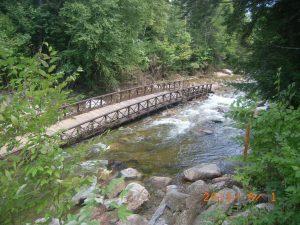
- Examining Methods of Ecosystem Services Valuation to Better Inform Watershed Policy – Klancey Burford & Shannon Rogers
- Reaching Across the New Hampshire-Massachusetts State Boundary to Landowners, Communities, and Volunteers in the Merrimack River Watershed – Alicia Carlson
- Characteristics that Influence Level of Concern in the Great Bay Estuary Watershed – Noah El-Naboulsi & Shannon Rogers
- NH EPSCoR: Ecosystems and Society – Kevin Gardner
- Mobilization of Heavy Metals from Residential Activities – Scott Greenwood
- Outcomes from Stakeholder Interviews for the Squam Lakes Watershed Plan – June Hammond Rowan, Carolyn Greenough, Rebecca Hanson, & Matthew Mazzone
- Watershed Status in the Gulf of Maine – Matthew Liebman
- Modeling Phosphorus Fluxes in the Squam Watershed – Rebecca Hanson
- The View from Mt. Prospect: An analysis of the role that Mt. Prospect plays in the Pemigewasset Watershed – Larry Spencer
- Examining the Effects of Climate Change and Road Salt Usage on NH’s Benthic Macroinvertebrates – Roy Fruit, Matthew Mazzone, Ryan Duquette, Thomas Lafortune, Dr. Amy Villamagna, and Dr. Brigid O’Donnell
- Restoring flow in the Beebe River: Implications for Eastern Brook trout – Tyson Morrill
- Dam Removal as Compensatory Mitigation: Challenges and Recommendations – Simone Souza
Demonstration – in the lobby throughout the day:
- Massachusetts Watershed-Based Plans: A new web-based tool for statewide watershed planning – Robert Hartzel
NH Water and Watershed Conference at Merrill Place, Plymouth State University, Plymouth, NH
March 18, 2016
Managing New Hampshire’s Water for a More Resilient Environment
Our watersheds are regularly exposed to a variety of disturbances, both of natural and human causes. Some disturbances are happening more frequently and often are of larger magnitude. The 2016 Conference focused on the concept of resiliency — or the ability of our natural watersheds and water systems, and built infrastructure, to respond to and recover from disturbances — by looking at how it relates to water supply and demand, floods and flood hazards, watershed management and planning, the value of water, how NH communities are adapting, and the relationship between water and tourism in New Hampshire.
Agenda
8:00 am: Registration
8:30 am – 9:30 am: Welcome & Plenary Talk
- Welcome – Donald Birx, President, Plymouth State University
- Plenary Talk – Resilience of New Hampshire’s Hydrology to Forest Harvesting – Mark Green, Associate Professor of Hydrology, Center for the Environment, Plymouth State University and Research Hydrologist, Northern Research Station, U.S. Forest Service
9:30 am – 10:00 am: Break & Poster Session
10:00 am – 12:00 pm: Morning Talks
Stormwater Management and MS4 Permits | Chair: Dave Cedarholm
- Watershed-Based Stormwater Compliance for New Hampshire MS4 Communities – David Cedarholm and Emily Scerbo
- Regulated Municipalities Want Clean Water Too – Barbara McMillan
- BMP Optimization for Cost Reductions in Municipal Stormwater Permitting – Robert Roseen and Nigel Pickering
- Performance Evaluation of Two Undersized Retrofit Stormwater Control Measures – James Houle
Floods and Flood Hazards | Chairs: Shane Csiki and Richard Kiah
- Wood in Rivers: Flood Hazard Risk or Hazard Reduction Tool? – John Field
- Suncook River – Providing Resiliency to the Stream Channel Profile following a 100-year Flood Event – Nick Nelson and Steve Landry
- Flood Hazards, Assessment and Analysis in NH: Impacts, Results, and Prospects – Shane Csiki and Ashley Inserillo
- Flood-Inundation Mapping Science – Gardner Bent
Water and Infrastructure | Chair: Brian Goetz
- Drought Assessment and Response in New Hampshire – Brandon Kernen, PG, NH DES
- Utilizing Local Grass Roots Interest to Identify Impacts to Aquatic Resources from Road Stream Crossings at the Watershed Level – Ben Nugent
- Modeling the Effects of Climate Change and Sea-Level Rise on Groundwater Levels and the Implications for Road Infrastructure in Coastal New Hampshire – Jayne Knott
- Groundwater Level Monitoring Plan for Protecting Public Water Resources from Prolonged Droughts – Jeffrey Marts
Modeling New Hampshire’s Water and Watersheds | Chair: Shannon Rogers
- Linking Field Measurements and Numerical Modeling to Understand Fluvial Transport Processes and Nitrate Retention in the Suncook River, NH – Meghan Arpino
- Natural vs. Anthropogenic Aquatic Infrastructure: How ecosystem services of DIN removal interact with wastewater treatment in the northeast US – Rob Stewart
- The Role of River Networks in Regulating Fecal Coliform – Tao Huang
- Chloride impairment of the Merrimack River through 2100: The interactive roles of climate, development, and management – Shan Zuidema
Measuring and Modeling New Hampshire’s Water and Watersheds | Chair: Michelle Shattuck
- 2016 USGS Northeast Stream Quality Assessment – James Coles
- Attached Algae as an Indicator of Water Quality: A study of the viability of genomic taxonomic methods – Allison Wood
- Nitrogen Retention Within Wetland-Dominated Stream Reaches in New England – Anne Lightbody and Sophie Wilderotter
- Non-Point Nitrogen Sources and Transport in the Great Bay Watershed – Michelle Shattuck
12:00 – 12:45 pm: Poster Session & Lunch
12:45 – 2:15 pm: Afternoon Talks
Local Knowledge/Local Communities | Chair: Judy Tumosa
- Exploring the Local Ecological Knowledge of Surfers in Maine and New Hampshire – Sophia Scott
- Investing in Forestland Conservation and Management for Water Services – Marcy Lyman and Spencer Meyer
- Water and Watershed Actions in the 2015 NH Wildlife Action Plan – Loren Valliere
Watershed Planning & Management for Regulatory Compliance Chair: Barbara McMillan
- Piscataqua Region Environmental Planning Assessment: Where does your community fit? – Abigail Gronberg
- Great Bay Pollutant Tracking and Accounting Pilot Project (PTAPP) – Sally Soule and James Houle
- Permeable Reactive Barriers for Reduction of Nitrate Discharge from Septic Systems: Preliminary results from a Great Bay pilot study – Danna Truslow, PG and Mark Kelley, PE
Ecosystem Services and the Value of New Hampshire’s Water | Chair: Alison Watts
- Exploring approaches to assessing natural capital’s role in environmental decision making–Insights from stakeholder engaged watershed case studies in New England – Shannon Rogers
- A Novel Deliberative Multicriteria Evaluation Approach to Ecosystem Services Valuation – Mark Borsuk and Georgia Mavrommati
- Ecosystem Service Valuation at Regional Scales Using a Coupled Terrestrial and Aquatic Biogeochemical Model – Nihar Samal
Water and People | Chair: Joe Boyer
- Making a River Segment Family and People Friendly: A case study of the Pemi river in the Plymouth region – Kenneth Evans, Larry Spencer, Patrick Hummel
- Water Trails - An economic stimulus for local communities – Lelia Mellen, National Park Service
- Milfoil Management in the Squam Lakes: Tentative success in a 15 year battle – Rebecca Hanson
Measuring and Modeling New Hampshire’s Water and Watersheds | Chair: Mark Green
- Why Ice Storms Aren’t Cool: New research at the Hubbard Brook Experimental Forest – Lindsey Rustad
- Where Do Forests End and Streams Begin? Intermittent streams in New Hampshire – Scott Bailey
- A Spatiotemporal Study on Urban Development in New England Watersheds – Megan Corbiere
2:15 – 2:30 pm: Break
2:30 – 4:00 pm: Water and Tourism in New Hampshire Panel Discussion
Moderator: Paul Susca
Panelists:
- E.B. James of Squam Lakes Association
- Rusty McLear of Mill Falls at the Lake
- Adam Keul of Plymouth State University
- Roger Stephenson of Stephenson Strategic Communications
- Kris Blomback of Pat’s Peak Ski Area
Throughout the Day: Posters on New Hampshire Water Topics | Chair: Carolyn Greenough
- Plastic Marine Debris: A novel pathway for mercury contamination of seafood? – Sasha Adkins
- The Social Indicator Project: Integrating social science into ecosystem management for New Hampshire’s estuaries – Simone Barley-Greenfield & Jill Farrell
- Reaching Out to Landowners and Communities in the Merrimack River Watershed – Karen Bennett & Alicia Carlson
- Understanding Storm Event Nitrate Export in Different Land Uses – Christopher Cook
- An Algorithm for Analyzing Streamwater Specific Conductance Time Series – Daniel Demers
- High-Flow Transport of Metals Downstream of Ore Hill Mine, Warren, NH– Brittani Doran
- Monitoring Strategies for Characterizing Streamwater Inorganic Monomeric Aluminum – Carly Ellis
- Quantifying Morphological Location of hsp70 Stress Protein Expression in Mayflies – Roy Fruit
- Northern NH Snow Records from 1930 to 2015 – Marina Plopeanu & G.L.D. Murray
- Creek Critter App – Dawn Genes
NH Water and Watershed Conference at Attitash Grand Summit Resort Hotel & Conference Center, Bartlett, NH
March 18-20, 2015
In 2015, the New Hampshire Water & Watershed Conference coordinated with the New England Association of Environmental Biologists (NEAEB) on a joint conference on March 18-20, 2015 at the Attitash Grand Summit Resort Hotel & Conference Center in Bartlett, NH. The agenda for this event focused on integrating water and watershed research and biology and explore opportunities for integrated resource management. Topics included watershed management for water quality and biotic communities, the effectiveness of watershed restoration projects, land use planning and climate change. Water researchers and planners, watershed organizations, policy makers, and water resource volunteers to joined environmental biologists and natural resources scientists at a unique event about our watersheds and the resources within.
